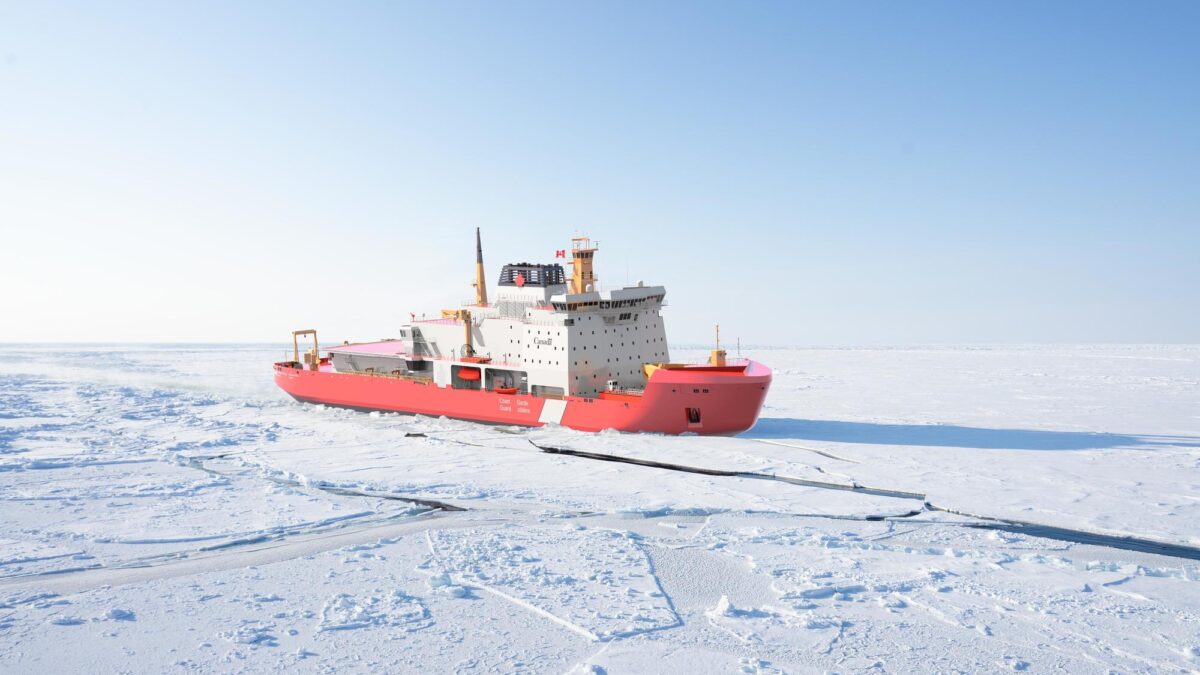Seaspan Prepares to Begin Construction by Year’s End
On May 29, 2024 at CANSEC, Canada’s premier defense and security tradeshow, Seaspan’s Vancouver Shipyards showcased their advanced progress on the functional design of Canada’s first heavy Polar Icebreaker in over six decades. With over 70 percent of the design finalized and substantial progress made in 3D modeling, Seaspan is on track to begin construction of the new flagship vessel for the Canadian Coast Guard’s icebreaking fleet before the year concludes.
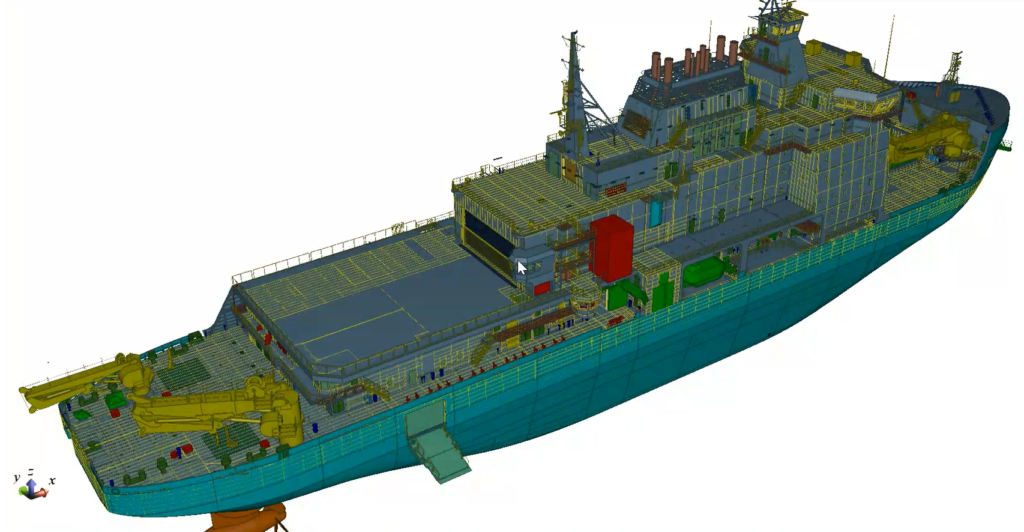
As Canada anticipates the retirement of its largest icebreaker, the CCGS Louis S. St-Laurent, at the end of this decade, the new Polar Icebreaker is set to become one of the world’s most formidable and powerful icebreakers. While the Louis S. St-Laurent, designed prior to the Polar Code, operates similarly to a Polar Class 4 vessel, the new icebreaker will meet the stringent standards of Polar Class 2. This means it will be able to operate independently throughout the Arctic year-round, enduring temperatures as low as -50 degrees Celsius, which poses significant design and construction challenges.
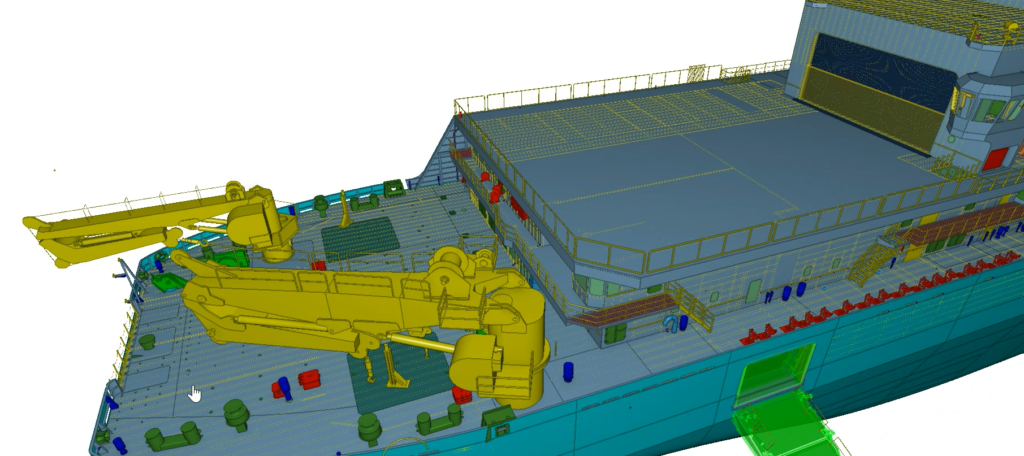
Unlike most icebreakers, which primarily focus on breaking ice, this new vessel will be equipped to undertake a variety of demanding missions vital to Canada’s interests. These missions include Arctic scientific research, search and rescue operations, security patrols, navigation support, transportation, and emergency response. These diverse capabilities add complexity to the design and engineering efforts of the Canadian Coast Guard and the Seaspan team.
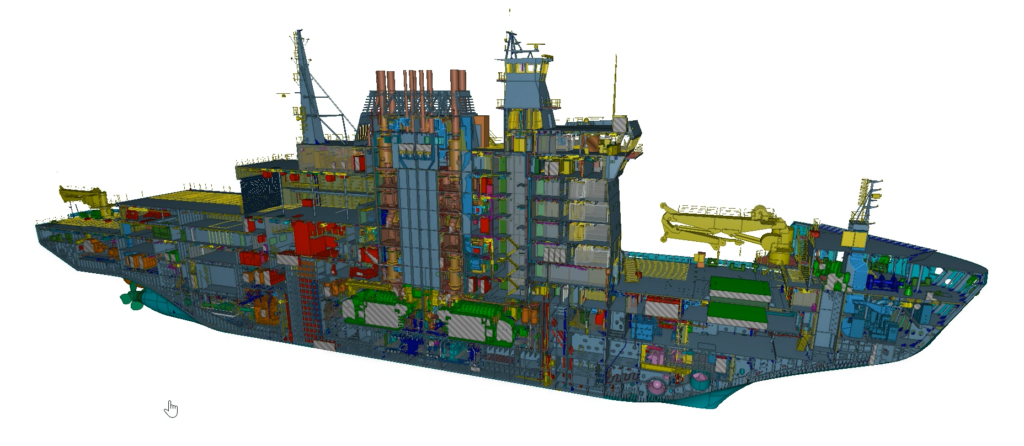
“Beginning construction on the Polar Icebreaker will be a monumental achievement for Seaspan, Canada and the National Shipbuilding Strategy,” said Dave Hargreaves, Seaspan Shipyards’ Senior Vice President of Strategy, Business Development and Communications. “By re-investing in our shipyard’s capabilities and continuously driving improvements in efficiency and quality ship over ship, Seaspan has shown that we have the experience, skills, and personnel to build one of the largest and most complex ships ever to be constructed in Canada. Our experience as the modern Coast Guard’s leading shipbuilding partner can now be leveraged by other Canadian shipyards to deliver Canada’s ships faster and smarter.”
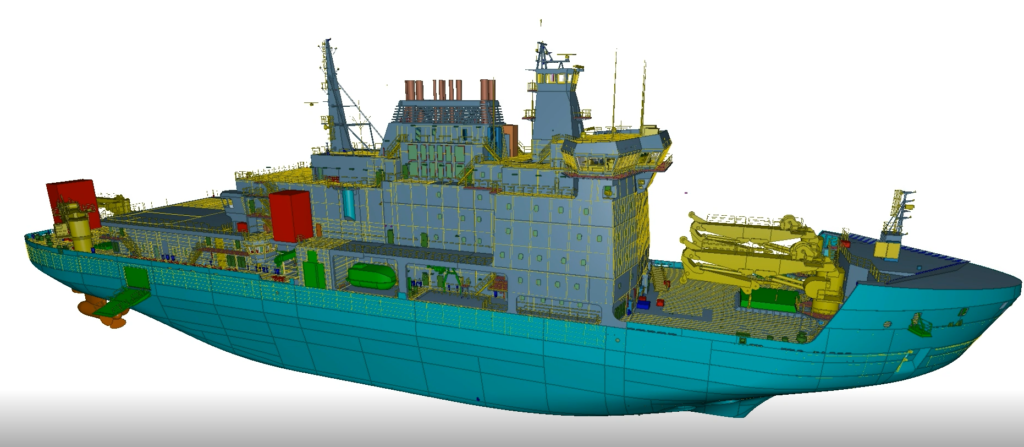
Earlier this year, Seaspan completed a critical step in preparation for full-scale construction by building a Polar Prototype Block. This prototype helped ensure that production teams are ready to start cutting steel later in 2024. The process led to key insights in three main areas: refining the design for manufacturability, testing new equipment and procedures, and confirming the quality of manufacturing processes for the unique, thicker steel required. This steel, which is up to twice as thick in some areas compared to other ships built under the National Shipbuilding Strategy (NSS), is more challenging to work with and demands precise welding in tight spaces to maintain icebreaking capabilities.
“The Polar Icebreaker presents unique and complex design challenges, and I’m extremely proud of our team and the progress we’ve made to optimize the design of this important vessel for Canada,” said Jessica Fetterman, Chief Engineer, Polar Icebreaker for Seaspan. “Thanks in part to our cross- country supply-chain of 750+ partners, Seaspan has built Canada’s largest marine engineering and design team, a tremendous capability that did not exist here before the National Shipbuilding Strategy.”
Key Facts About the New Polar Icebreaker
Size and Capacity: With a design displacement of 26,036 tons, the icebreaker will measure 158 meters in length and 28 meters in width, accommodating up to 100 personnel. It will be capable of operating further north, in tougher ice conditions, and for longer periods than any other Canadian icebreaker to date.
Primary Missions: The icebreaker’s main missions will include protecting Canadian sovereignty, conducting Arctic scientific research, environmental response, Northern resupply, and search and rescue operations.
Notable Design Features:
- IACS Polar Class 2 (PC2) Heavy Icebreaker
- Over 40MW of installed power
- Ice-classed azimuthing propulsion system
- Versatile, multi-role mission capability
- Scientific laboratories
- Moon Pool for safe deployment of equipment from within the ship
- Helicopter flight deck and hangar
- Vehicle garage and future capability for Remotely Piloted Aircraft Systems (RPAS)
Under the NSS, Seaspan has emerged as a significant driver of economic growth and job creation. A Deloitte economic analysis highlights that since 2012, Seaspan has contributed $5.7 billion to Canada’s GDP and has created or sustained more than 7,000 jobs annually.

